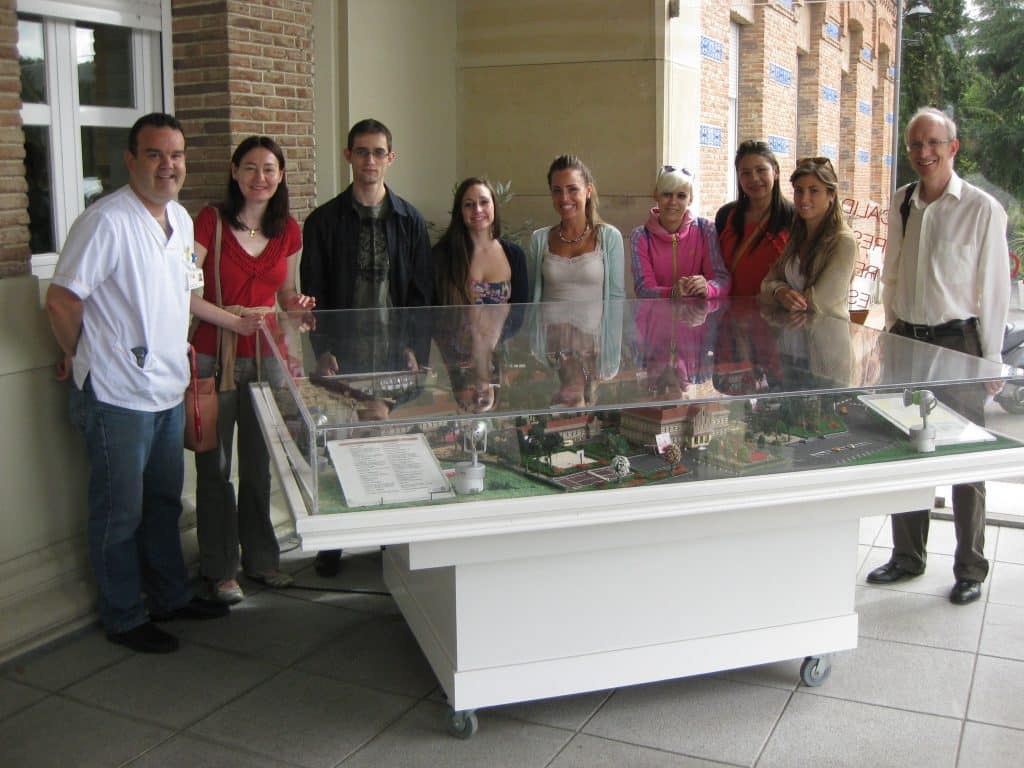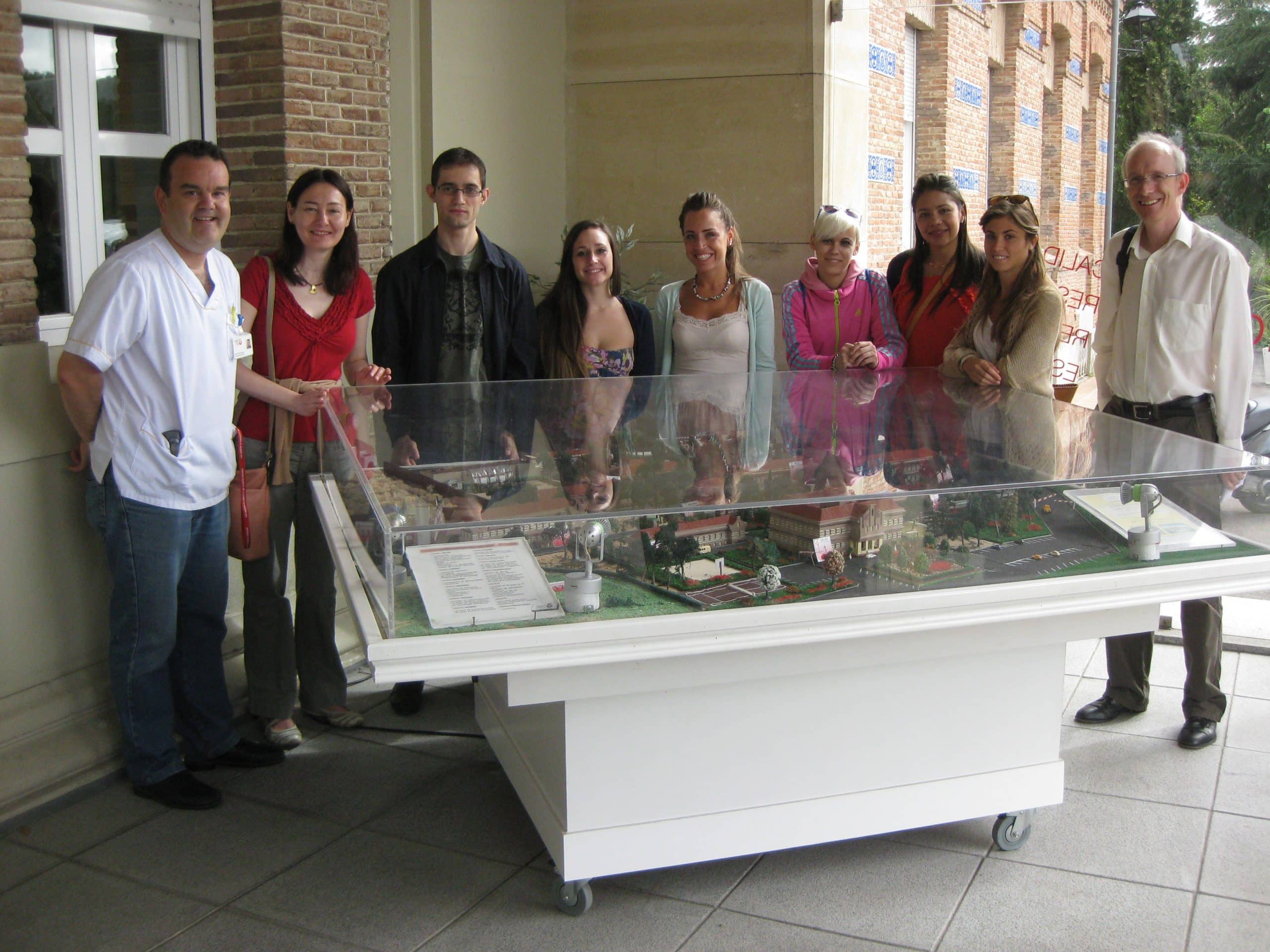
El pasado martes 18 de junio, los alumnos de inglés de IH Diego de León (nivel B2.1), visitaron la Fundación Instituto San José con sus profesores Inma y Conor. Han realizado un trabajo en inglés sobre su visita y quieren compartirlo con nosotros.
¡Muchas gracias por vuestro trabajo!
Paulina, Ana and Andrea
International House Madrid gave us the opportunity to visit The Instituto Fundación San José, which was set up in 1899 by the Marques de Vallejo. He created this Institution because his son had died during a hard epilepsy attack. Here they work with children and teenagers (many suffering from epilepsy) adults and 3rd Age with all kinds of disability.
Yesterday we went to see the animal therapy that IH supports. In that therapy there were two dogs (a Boxer and aLabrador) working with three kids. These kids have epilepsy, speaking difficulties, concentration problems, hyperactivity, compulsive behavior, social interaction problems, and they have to wear nappies.
When we arrived the teacher, Laura, met us with Katalina (three and a half years) Esther (four years) and Samuel (seven years). They were waiting for each turn to play with Lola, the gentle and patientLabrador. The therapy consisted of transferring their anxiety to the dog; they did this by pushing, hugging, hitting and brushing with a brush. We thought that the dog was going to bite them but it was so amazing to see the dog’s behavior, because it never moved.
Then we went to their class inside the building. They always do the same things because it is the way that they can improve their autonomy:
1. They began the class taking the roll with photographs.
2. They had to stick the day of the week on the board.
3. They had to do the same with the menu of the day.
4. Afterwards they played together in the classroom with all kinds of toys
5. When the time was over the children left the classroom to go to an open playground and they started to play with other children of the Foundation.
How did we feel? Well, we had a mixture of feelings. On the one hand, we were happy to see how well the specialists were dealing with the kids in the different situations, their motivation, and their way of understanding each child. We could see the happiness of these children. But on the other hand we realised that the future of these kids is going to be very hard.
Definitely we admire the work of the Foundation and the people who work there.
Ramon, María and Irene
We were part of the International House, Madrid class visit to the Instituto Fundación San José on June 18th 2013.
We spent time with three different groups. The first ten minutes with the first group wasn’t as tough as we thought. It was a writing class of five students and they could communicate with some difficulties with each other. They were learning vocabulary about holidays. Some of the teenagers looked like any other kid. And a few others had some problems but they could still reason and concentrate on the activity.
The next two groups were having sessions with animal therapy. This was more difficult for us as the children had more severe disabilities. Some couldn’t speak and were making grunting sounds, a few had mobility problems and were in wheelchairs. But their common handicap was that they had problems concentrating and some had autism. There were two dogs and two dog handlers. The dogs helped the children to focus better as the animals are undemanding and don’t put pressure on them.
The patient that impacted on us the most was Rafael who was in a wheelchair and couldn’t speak. The dog handler, Carlos, showed us that by playing a game using a ball he could get Rafael and the dog to interact with each other.
Finally, we would like to mention the mental strength and the patience of the teachers. They are for us like heroes. The main work of a teacher is that their students can learn all that the teachers show them but in the case of the Foundation the teachers have to bear with the lower ability of the children in remembering what they did or what they had done in the last session. It is like a man walking through the desert searching for an oasis. When they see progress, the oasis in the desert, the teacher must feel like the happiest person in the world. Their patience and perseverance are admirable.
It’s a pity that these disabilities exist and nobody can do anything to prevent them. The lives of these children are going to be tougher than for any other kid. But on the day we visited they were happy in the Foundation playing with the dogs, with their teachers, and with the other children.

